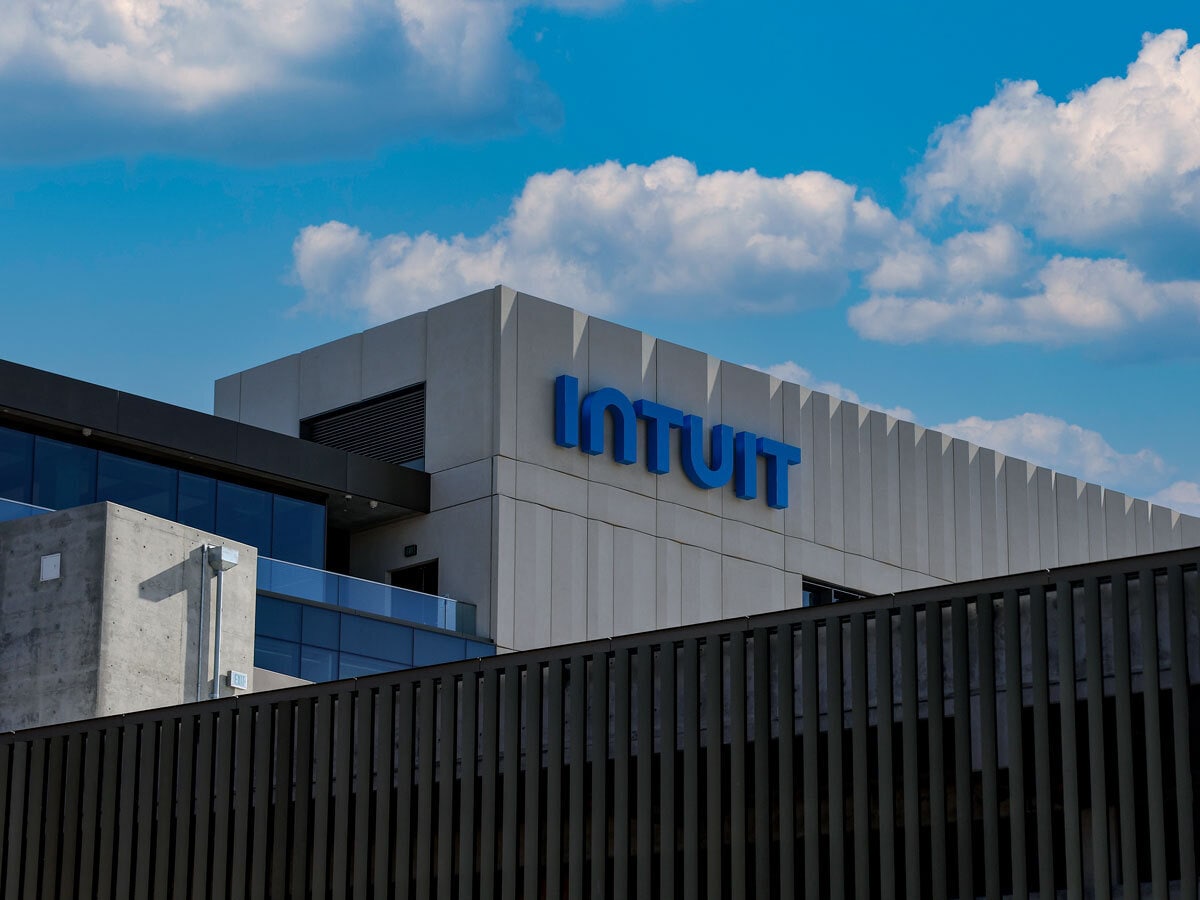Software-as-a-service (SaaS) stocks offer an investment opportunity with exposure to a number of high-growth themes, including cloud computing and artificial intelligence (AI).
A notable uptick following the election of US President Donald Trump brought the share prices of many stocks in the theme above their Covid-19 pandemic-era highs.
The iShares Expanded Tech-Software Sector ETF [IGV], which tracks a number of SaaS and cloud-related stocks, finished up 18.88% in the past 12 months on February 21, although it was up just 0.33% in the year to date.
In this article, we will dive into five SaaS stocks reporting this week and examine the investment case for each.
Autodesk [ADSK]
A San Francisco-based provider of 3D design, engineering and entertainment software, Autodesk has maintained a market lead for decades, especially in architectural design, thanks to its signature AutoCAD and Revit products.
In November, Autodesk reported healthy overall Q3 revenue and subscription plan revenue growth of 11%, with a net revenue retention rate in the 100–110% range, signifying that the company has had little trouble retaining customers.
While the share price dropped from November 22’s 52-week high following the Q3 earnings report, it has largely recovered, trading at levels near to its historic 2021 highs. As of February 21, it was down 3.58% year-to-date and up 11.65% in the past year.
Autodesk is due to report Q4 2025 earnings on February 27.
Intuit [INTU]
California-based Intuit provides financial management and marketing platforms such as TurboTax and Mailchimp to both individual and enterprise customers. It announced Q1 2025 results on November 21, with a 10% year-over-year increase in quarterly revenue driven by growth in its Global Business Solutions and Group and Credit Karma. The firm also reiterated its full-year guidance, with CEO Sasan Goodarzi stating that “our innovation and the proof points we’re observing continue to bolster our confidence in our strategy.”
Financial performance aside, INTU stock has had a rocky year, plunging to 52-week lows after reporting Q3 2024 earnings in May, despite beating both earnings and revenue estimates. The share price quickly recovered, however, peaking in early November before beginning a slide it has yet to recover from. INTU stock is down 9.88% in the year to February 21, and down 11.92% in the past 12 months.
Intuit is scheduled to announce earnings for Q2 2025 after markets close on February 25.
Salesforce [CRM]
Virtually synonymous with customer relationship management technology, Salesforce provides a range of customer service and workflow platforms, including Slack, many of which are supported by cloud storage or AI capabilities. In its Q3 earnings report filed in December, the firm announced a year-over-year rise of 9% in subscription and support revenue to $8.88bn, and raised its guidance for FY25 revenue, GAAP operating margin and operating cash flow.
While CRM has had a difficult start to 2025, closing down 7.34% year-to-date on February 21, since November the stock has traded above its previous record highs set in 2020 and 2021, and is up 8.78% in the past 12 months.
Salesforce is scheduled to announce Q4 2025 earnings on February 26.
Snowflake [SNOW]
Bozeman, Montana-based cloud computing firm Snowflake offers AI-powered data intelligence solutions to businesses. It reported 30% year-over-year growth in product revenue in its Q2 2025 earnings report in November and raised its full-year product revenue guidance to $3.36bn, representing 26% yearly growth.
The firm made waves among investors after conducting the largest-ever software IPO, reaching a valuation of $70bn in the first day of trading. The stock surged in late 2020 and 2022, but has since fallen considerably, trading down 29.96% from its first-day close of $254 as of February 21. SNOW stock has recovered somewhat from a difficult 2024, rising 15.21% in the year to date, but remains down 19.17% in the past year.
Snowflake is scheduled to announce Q3 2025 earnings on February 26.
Workday [WDAY]
Pleasanton, California-based Workday offers enterprise cloud applications to customers, notably financial management and HR solutions. Its Q3 2025 earnings, released in November, came in above analyst expectations, although its muted forecast saw WDAY stock slide. Revenue came in at $2.16bn, up 16% year-over-year and above Wall Street forecasts of $2.13bn.
WDAY’s share price fell some 11% following the earnings report, but has since recovered to trade flat through the end of the year. It was, however, down 15.5% in the 12 months to February 21, thanks in part to notable highs recorded in early 2024. The stock is down a marginal 0.64% in the year to date.
Workday is scheduled to release Q4 2025 earnings after markets close on February 25.
Comparing the Fundamentals
| ADSK | INTU | CRM | SNOW | WDAY |
Market Cap | $61.42bn | $158.28bn | $296.48bn | $58.72bn | $68.02bn |
P/S Ratio | 10.36 | 9.68 | 8.13 | 17.33 | 8.45 |
P/E Ratio | 56.66 | 55.01 | 51.04 | N/A | 42.10 |
PEG Ratio | 1.73 | 1.70 | 1.39 | 7.75 | 2.15 |
Estimated Sales Growth (Current Fiscal Year) | 11.38% | 12.47% | 8.89% | 28.08% | 15.96% |
Estimated Sales Growth (Next Fiscal Year) | 12.58% | 12.25% | 9.03% | 23.32% | 13.13% |
Source: Yahoo Finance
The Investment Case for ADSK Stock
The Bull Case
On the whole, analysts seem to be optimistic about Autodesk’s prospects, with 21 out of the 31 analysts surveyed by Yahoo Finance in February rating the stock a ‘buy’, while the remaining 10 rated it a ‘hold’. On February 19, Baird analyst Joe Vruwink reiterated his ‘overweight’ rating and raised his target price from $330 to $345, representing an upside of 21.05% on the most recent close.
The Bear Case
That being said, Autodesk continues to offer conservative guidance, suggesting that executives are not entirely convinced of the firm’s short-term growth prospects. Similarly, KeyBanc foresees “average” Q4 performance from the firm due to a waning boost from advanced purchases, which could see share prices drop following Q4 earnings. Some industry experts point to a lack of innovation in 3D modelling tools in general, with the potential rise of competitors like Motif — a start-up founded by Autodesk’s former co-CEO and Chief Product Designer Amar Hanspal — a factor that could eat into Autodesk’s market share.
The Investment Case for INTU Stock
The Bull Case
Singled out by Barclays alongside Microsoft [MSFT] and Workday to lead a comeback for the software sector in 2025, Intuit maintains a solid rating among analysts on Yahoo Finance, with 23 out of 33 rating it a ‘strong buy’ or ‘buy’. Intuit may also potentially benefit from the Trump administration’s attempts to cut government spending. In early February, Elon Musk said the IRS’ Digital File system had “been deleted”. The system enabled the government to prepare tax returns for individuals and formed “part of INTU’s bear thesis”, according to Mizuho Securities analyst Siti Panigrahi. The average target price for INTU on Yahoo Finance, $719.24, represents an upside of 27.19% from the most recent close.
The Bear Case
Intuit has largely underperformed the market in the past 12 months, and the firm’s restrained Q2 forecast came in below analysts’ expectations. This, combined with declining revenue from its Desktop Ecosystem segment, has spooked some, with one analyst surveyed by Yahoo Finance in February rating the stock a ‘sell’, while nine rate it a ‘hold’.
The Investment Case for CRM Stock
The Bull Case
In the run-up to Q4 earnings, Wedbush Securities said that the company has become a “clear second-derivative beneficiary of the AI revolution that could add $80 per share” in the coming 18 months, thanks in part to its AI enterprise platform, Agentforce. Wedbush analysts maintained their ‘outperform’ rating and $425 price target for CRM, representing an upside of 37.19% from its February 21 close.
The Bear Case
The slow pace of AI monetization means that revenue and earnings growth for the coming quarters could be lower than anticipated, with the benefits of the so-called “agentic era” unlikely to manifest in the near to medium term. Similarly, the company missed earnings expectations by 1.47% in Q3, and another upset could spell trouble for CRM stock.
The Investment Case for SNOW Stock
The Bull Case
The firm’s projected FY2025 growth remains notably higher than the other companies in the list, with strong Q2 product revenue growth underscoring the results the company can deliver. Snowflake has consistently beaten analyst expectations for revenue in recent quarters, and its net revenue retention rate of 127% suggests it can maintain its current growth trajectory.
Like Salesforce, Snowflake was identified by Wedbush Securities as a key SaaS player positioned to benefit from AI growth, with analyst Dan Ives maintaining an ‘outperform’ rating and upping his price target from $190 to $210 on January 22, representing an upside of 18.05% from SNOW stock’s most recent close.
The Bear Case
Despite high ratings from analysts, the company has yet to turn a profit. Similarly, it has struggled with EPS, missing estimates as recently as Q1 2024. It maintains a high-profile rivalry with Meta-backed [META] start-up Databricks, which in January was valued at $62bn, above Snowflake’s own market cap of $58.72bn. Should Databricks continue to grow its client base and AI-powered services, it could pose a serious threat to Snowflake’s growth prospects.
The Investment Case for WDAY Stock
The Bull Case
In early February, Workday announced a restructuring and reduction of its workforce set to be completed by Q2 2026, and reiterated its guidance for Q4 2025. The increased focus on profitability and hiring to drive AI adoption could bolster WDAY stock in the medium term. Of the 41 analysts surveyed by Yahoo Finance in February, 28 gave WDAY a ‘buy’ rating, while 13 gave it a ‘hold’ rating. The average price target of 294.91 suggests an upside of 15% from the most recent close.
The Bear Case
On February 19, Morgan Stanley analyst Keith Weiss downgraded Workday from ‘equal weight’ to ‘overweight’ and lowered his price target from $330 to $275, citing positive momentum that has failed to “translate into better growth for the overall company”, as well as lowered subscription growth expectations. The company’s broader restructuring, if it fails to streamline operations, could also suggest trouble down the line for WDAY stock.
Disclaimer Past performance is not a reliable indicator of future results.
CMC Markets is an execution-only service provider. The material (whether or not it states any opinions) is for general information purposes only, and does not take into account your personal circumstances or objectives. Nothing in this material is (or should be considered to be) financial, investment or other advice on which reliance should be placed. No opinion given in the material constitutes a recommendation by CMC Markets or the author that any particular investment, security, transaction or investment strategy is suitable for any specific person.
The material has not been prepared in accordance with legal requirements designed to promote the independence of investment research. Although we are not specifically prevented from dealing before providing this material, we do not seek to take advantage of the material prior to its dissemination.
CMC Markets does not endorse or offer opinion on the trading strategies used by the author. Their trading strategies do not guarantee any return and CMC Markets shall not be held responsible for any loss that you may incur, either directly or indirectly, arising from any investment based on any information contained herein.
*Tax treatment depends on individual circumstances and can change or may differ in a jurisdiction other than the UK.
Continue reading for FREE
- Includes free newsletter updates, unsubscribe anytime. Privacy policy





